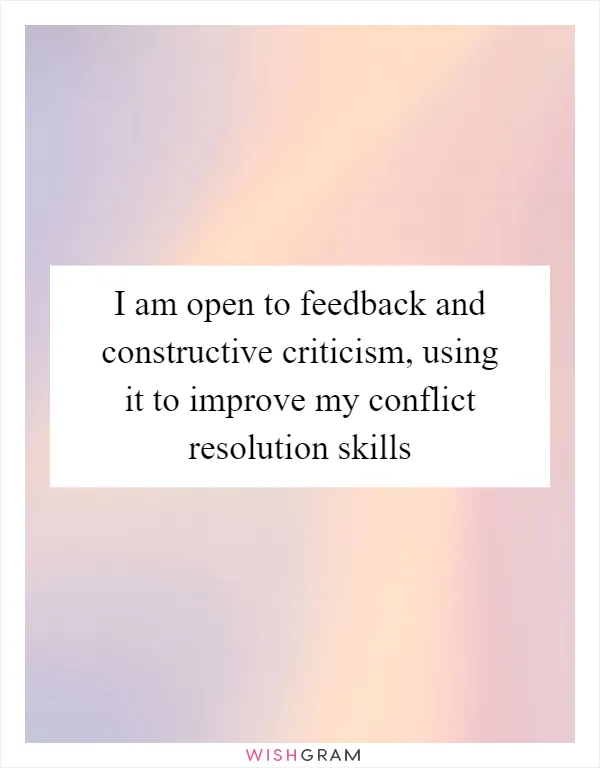I am open to feedback and constructive criticism, using it to improve my conflict resolution skills
The affirmation "I am open to feedback and constructive criticism, using it to improve my conflict resolution skills" can help you grow and develop as a person. It means that you are willing to listen to others and learn from their experiences, even if it means admitting that you are not perfect. By being open to feedback and constructive criticism, you can improve your conflict resolution skills and become a better communicator.
Conflict resolution is an important skill to have in life, whether it's in your personal relationships or in your professional life. It involves being able to listen to others, understand their perspective, and find a solution that works for everyone involved. However, conflict resolution is not always easy, and it can be challenging to navigate difficult conversations and disagreements.
By being open to feedback and constructive criticism, you can learn from your mistakes and improve your conflict resolution skills. This means being willing to listen to others and take their feedback into account, even if it's not what you want to hear. It also means being open to learning new strategies and techniques for resolving conflicts.
One way to improve your conflict resolution skills is to practice active listening. This means really listening to what the other person is saying, without interrupting or getting defensive. It also means asking questions to clarify their perspective and showing empathy for their feelings.
Another important skill for conflict resolution is being able to manage your emotions. This means staying calm and composed, even in the face of difficult conversations or disagreements. It also means being able to express your own feelings in a constructive way, without attacking or blaming the other person.
By being open to feedback and constructive criticism, you can learn from your mistakes and improve your conflict resolution skills. This means being willing to admit when you are wrong, and being open to learning new strategies and techniques for resolving conflicts. It also means being willing to practice these skills in real-life situations, even if it's uncomfortable or challenging.
